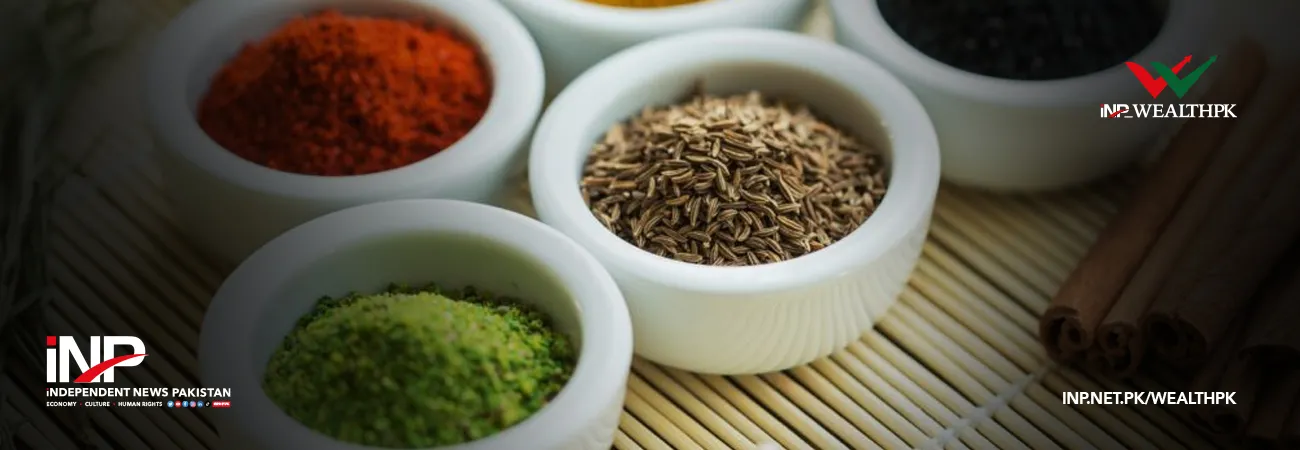INP-WealthPk
Faiza Tehseen
The Himalayan range in Pakistan is home to myriad varieties of valuable herbs, which can be turned into a billion-dollar industry with Chinese cooperation and assistance. President of Pak-China Joint Chamber of Commerce and Industry (PCJCCI) Moazzam Ghurki said this while talking to WealthPK. Pak–China joint production of herbal medicines is very important to providing natural and quality medicines to cure ailments. Pakistan’s diversified climate is ideal for growing expensive herbs, thus necessitating focus on indigenous cultivation and value addition, he said. Ghurki said for more than 2,500 years, China had excelled in research and application of herbs for health and beauty. Treatment through natural medicines is not only economical but also a sustainable way to improve lifestyles, he added. The international herbal market is expected to reach USD107 billion in 2024 and USD178.4 billion by the year 2026. “Despite 30,000 operational units for production of herbal medicines and personal care products in the country, still there is room for improvement and modernization.
Establishment of specialized herbal research institutes with Chinese collaboration is important,” added Moazzam. Senior Vice President of PCJCCI Fang Yulong said the world today was moving toward organic ways to sort out both health and exquisiteness. China has both the solution and technique to extract these benefits from herbs, he added. He said the largest Traditional Chinese Medicine (TCM) industry nestled in Sichuan province, which was home to at least 1,800 hospitals and 7,800 clinics using about 5,000 herbal varieties to cure multiple ailments. Principal Scientific Officer and Program Leader of the National Medicinal, Aromatic Plants and Herbs Program initiated by the National Agricultural Research Center (NARC) Dr. Rifat Tahira said Pak-China joint herbal medicines production will prove a great initiative. Chinese prefer traditional cures and the pharma industry mostly revolves around organic practices and medicines, she added.
“In Pakistan, both wild and cultivated herbs are found. Despite cultivation of herbs, the people are unaware of their value addition. They even lack knowledge about the use, market, and importance of herbs. So, a long-term awareness campaign is also important. “Obviously, Chinese collaboration will improve the cultivation and value addition manifold. In this way, we can present ourselves in the international market in a twice better way and can earn a good price. There is a lack of Pak-Chinese coordination in this industry. Recently, the Chinese government started training Pakistani experts in traditional Chinese medicines, diagnosis, and analysis techniques. “After this training, the work we are already doing on herbs can be extended to a more professional and standard level. Ultimately, by including the farmers, especially women, we may start women entrepreneurship up to a great level.
China has started this training program for developing countries and it is basically a capacity-building training.” Talking to WealthPK about the need to establish industrial units for production, processing, marketing, and value addition, Assistant Director of Punjab Agricultural Department Naveed Ahmad said it would be a good initiative to get China’s help to improve herbal cultivation and value addition.“Establishment of local institutes is also required to train the people. A lot of government agricultural institutes are working actively in Pakistan individually or with the coordination of other countries. There is no special need to build new structures. “Besides establishing value addition and cultivation training centers, it is also valuable to guide the people about how to seek the target market. Proper introduction of the value of herbs is also necessary to attract traders and investors. The government must also plan roadshows to showcase herbs and their value with Chinese joint ventures in other parts of the world. This will help promote this sector and create more job opportunities for a sustainable livelihood,” added Naveed.
Credit: INP-WealthPk













